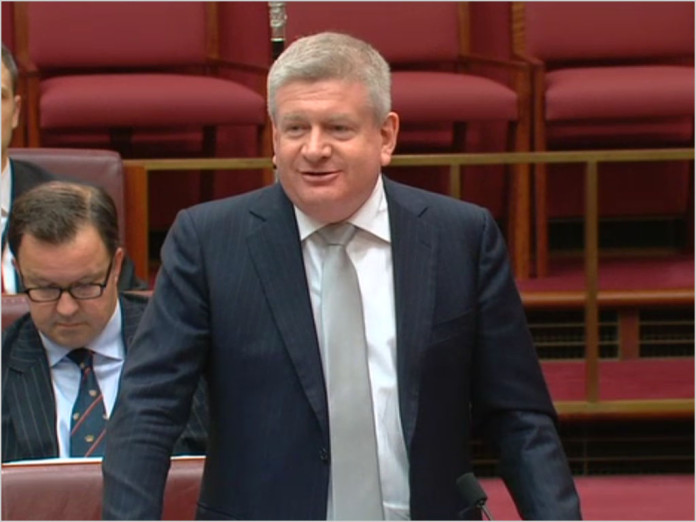
news The government has announced further measures aimed to cut red tape and costs to benefit both the communications sector and the general public.
Revealed in the 2 December announcement are the introduction of the Communications Legislation Amendment (Deregulation and Other Measures) Bill 2015 and Telecommunications (Numbering Charges) Amendment Bill 2015, which the government hopes will increase productivity while reducing compliance costs on industry and consumers.
The move comes at a time when Australia’s broadcasting and communications landscape is undergoing intense disruption brought from new digital technologies that are rendering traditional regulation inefficient or even redundant, the statement said.
These bills will address outdated regulatory requirements while “preserving flexibility for the regulators to adapt to changing industry trends”.
The bills include measures to:
- Streamline account-keeping and licence fee administration arrangements for commercial broadcasters and datacasting transmitter licensees
- Remove duplication for licensees, publishers and controllers who must notify the Australian Communications and Media Authority (ACMA) of changes in control of regulated media assets
- Implement a single classification scheme for TV programs and films
- Establish a framework by which the telecommunications industry can develop an appropriate scheme to self-manage telephone numbering.
According to the statement from the office of Communications Minister Mitch Fifield, there has been “significant progress” already in 2015 in the implementation of regulatory reforms in the communications sector. More than 20 new regulatory measures have resulting in estimated annual savings of over $250 million for businesses in the communications sector.
Key measures introduced this year and being highlighted by Fifield as victories for the Government include:
- Reforms to support the rollout of high-speed broadband using multiple technologies, providing greater flexibility for carriers to deploy telecommunications infrastructure, enabling cheaper construction and reduced delay costs for the national broadband network rollout
- Significant measures to modernise Australia Post, allowing it to operate with greater efficiency and flexibility in the face of a rapid decline in letter volumes and revenue
- The removal of retail price controls in telecommunications.
The statement said that government has introduced more than 65 communications sector measures in 2014-2015 aimed at simplifying regulation, and has removed thousands of pages of unnecessary regulation.
“This has delivered an estimated cumulative annual savings of $340 million for businesses and consumers in the communications sector,” it said.
The government also promises longer term regulatory changes, including improvements to Australia’s spectrum management framework and a review of the ACMA, to ensure the regulator remains “fit-for-purpose in a rapidly changing environment”.
It is not yet clear how the Opposition and minor parties will react to the legislation.

“Reforms to support the rollout of high-speed broadband using multiple technologies, providing greater flexibility for carriers to deploy telecommunications infrastructure, enabling cheaper construction and reduced delay costs for the national broadband network rollout”
If it wasn’t so blindly throwing our country’s future in a hole, I’d laugh at this, instead I cry. Cheaper construction is a very bad thing, especially in infrastructure. Infrastructure of any kind needs to last a very long time. Imagine if they built the highways with cheap bitumen because $50 billion to build a highway around the entire country was too much – they could do it for $40 billion – but then the lower quality bitumen melts in the sun and requires $1b a year to maintain. Cheaper construction – higher maintenance.
The fact they’d try and say that they have reduced delays is laughable. Fibre has been all but canned and the FTTN/HFC networks have been delayed for 3 years already – remember the election promise, ready to deliver on day one? I do.
“greater flexibility” is code for, returning to the bad old days where one suburb has 3 different sets of broadband networks, and another suburb has only one (or zero).
Carriers deploying telecommunications networks is a joke in this country, there is no overall planning done between them to even make sure they don’t do stupid things like miss one street out.
Indeed the US is a perfect example of the mess that private industry makes of communications.
If the government wanted to deregulate and increase competitions in this country, then the government needs to buy back all Telephone Exchanges including Pit/Pipes/Ducts and class them as “public assets”. That’s the only way forward that allows free enterprise no matter how big or small can proactively roll out their networks nation wide without facing stupidly high monopoly prices and bully like regulations from both Telstra and the Government.
We need physical asset competition, not a bunch of resellers of a gang of 3. All that the NBN is doing is creating Telstra v2.0 with a class of “haves” and “have not”. The key to competition is yes gasp, competition! And that’s what Australia is lacking in the telecommunications environment.
Yeah, that’s what this country needs, less regulation getting in the way of corporate profiteering and monopoly leverage. Nice one, LNP. Three cheers for vertical wealth redistribution!
“…cheap bitumen because $50 billion to build a highway around the entire country was too much – they could do it for $40 billion – but then the lower quality bitumen melts in the sun and requires $1b a year to maintain. Cheaper construction – higher maintenance.”
Ah yes, but think of the employment generated for the repairs! And the tax take from the employment!
You gotta have VISION!!!!!!!!!!!!!!
And yet the AG dept wants to introduce more regulation through the Telecommunications Sector Security Reforms, including requiring telcos to do or not do a “thing” and which vendors they can use.
A single classification scheme is interesting, I wonder if there’s scope for liberalisation (hah) here, or will the religious right try to make them stricter …
TPG want to OWN ALL THINGS!
I guess they had to do something to sweeten the deal for telcos after they increased telco costs substantially with all the new red tape they’ve brought in…
Comments are closed.